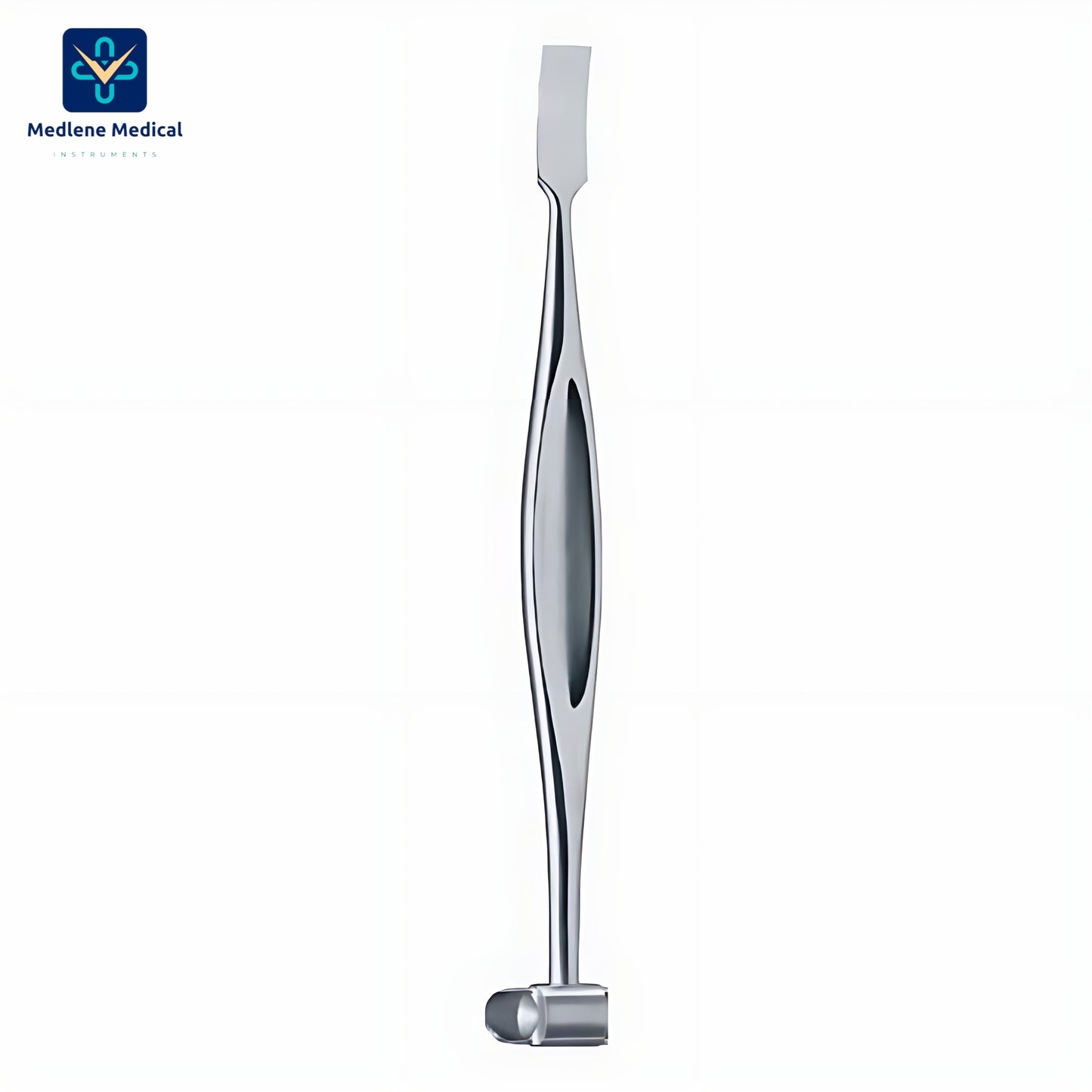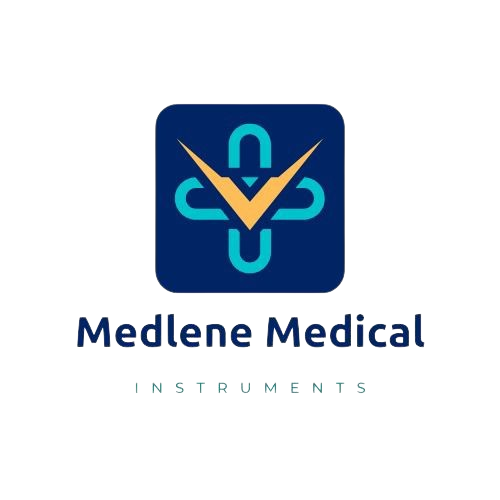ALEXANDER PERIOSTEAL ELEVATOR
ALEXANDER PERIOSTEAL ELEVATOR
Medlene® Alexander Periosteal Elevator is a specialized surgical instrument that thoracic surgeons commonly use to scrape periosteum and other hard tissues from the desired rib, in order to perform transcostal incisions.
- Double-Ended Profile for Scraping Tissues with Ease.
- Mallet-Shaped Tip for Gouging Bone Surfaces.
- Ergonomic Solid Handle for Maximum Control.
The Alexander Periosteal Elevator offers a wide array of surgical advantages in thoracic surgeries. These advantages are ideal for gaining access to the kidneys and perform nephrectomy or adrenalectomy.
For this purpose, the elevator features a reliable double-ended design connected by a central handle. Moreover, one tip consists of a curved chisel and the other has a mallet-shape. Also, the mallet tip has two sharp gouges for scraping and debulking bony tissue.
As a result, surgeons can use the device to gain access to the kidney by opening a transcostal incision through the bed of the 12th rib. In addition, the instrument features a solid handle with a thumb recess for minimizing fatigue.
Product features
Product features
Made in highest quality, surgical grade stainless steel with satin finish to reduce glare. The instrument can be sterilized and reused.
Materials and care
Materials and care
PRODUCTS
This reprocessing instruction applies to reusable surgical and endoscopic instruments supplied by MEDLENE Medical.
GENERAL
Reusable surgical instruments from MEDLENE Medical can be used by medical professionals for a surgical procedure and can be reused after qualified reprocessing.
The professional user selects the appropriate instruments according to the intended function, the tissue to be manipulated and the anatomical structures.
WARNINGS AND PRECAUTIONS
MEDLENE Medical instruments must be cleaned, disinfected,
and sterilized before first use. Protective caps and transport packaging must be
removed beforehand.
A complete functional check must be carried out before each use. Improper use and overstraining due to twisting / levering can lead to breaks and permanent deformation.
Do not use metal brushes or abrasives, as there is a risk of corrosion due to surface damage. The safe
combination of instruments with each other or of instruments with implants must be checked by the user before clinical use.
Be careful when handling sharp tips and cutting edges - risk of injury.
In case of patients with Creutzfeldt-Jakob disease (CJK), suspected CJK or possible variants of this disease, the applicable national regulations regarding the preparation of instruments must be applied. Never leave instruments in disinfectant solution for too long. Follow the instructions of the respective manufacturer.
Share


